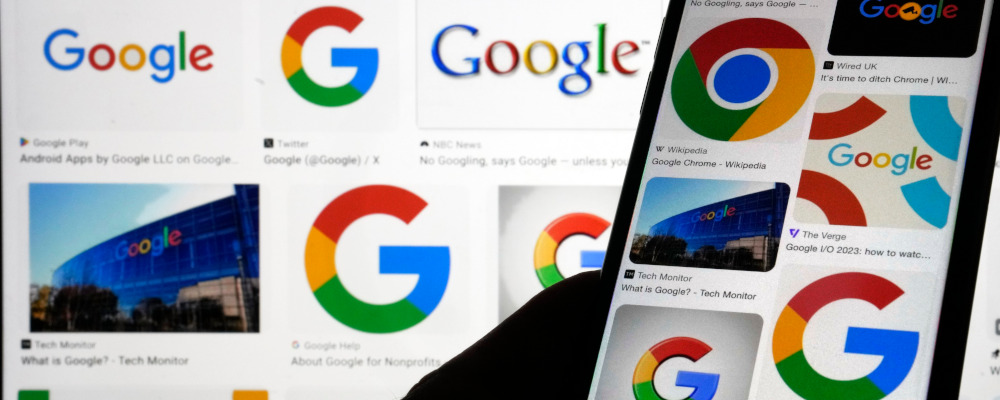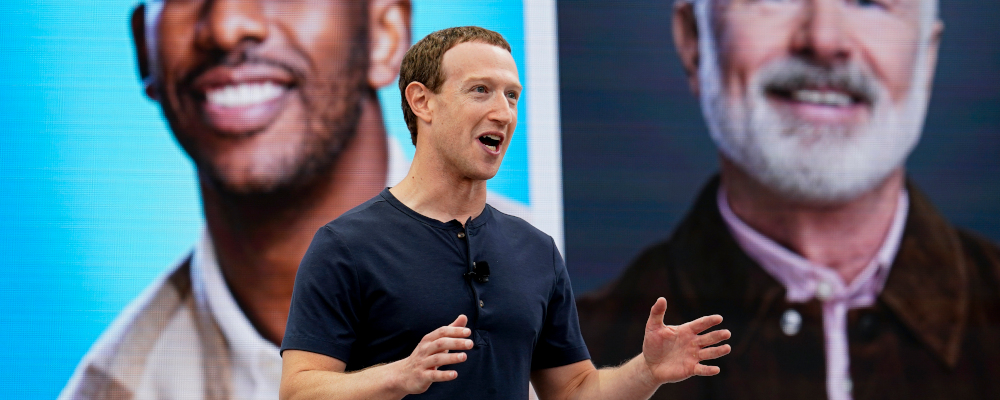The news media in Canada is in crisis. Policy responses to date are failing to solve for the information that citizens need to make informed decisions about important issues and debates. The Future of News series brings together leading practitioners, scholars, and thinkers to imagine new business models, policy responses, and journalistic content that can support a dynamic future for news in Canada.
The resolution to the standoff between Google and Ottawa over the Online News Act (Bill C-18) has brought a sigh of relief to Canadian publishers.
Google’s threat to pull news from its services was an alarming scenario for an industry still struggling to recover from Meta’s decision in the summer of 2023 to block news on its services.
If Google had followed suit, Canadian journalism would have effectively vanished from the internet—a potentially shocking outcome for publishers, citizens, and the government.

However, the deal for Google to provide $100 million annually to news outlets is merely a short-term respite for a beleaguered industry, particularly for Canada’s commercial news conglomerates which still depend on delivering mass audiences to advertisers.
Slowly but surely, the big tech giants are breaking up with the news industry. It’s a reversal of the strategy of the past decade when the platforms wooed publishers with money, support, and services.
The result is a challenging future for Canadian news outlets which have become accustomed to reaching and attracting audiences via search, social media, and news aggregators.
News through the side door
The reality is that the way people get the news has been turned on its head. Millennials and Gen Z have grown up with digital news all around them, be it online, on social, or on mobile.
Growing up digital has meant that these generations have not had to seek out the news and go to a website directly or tune into the news at a specific time on TV and radio. Instead, the news has come to them and they have stumbled across headlines as they scroll Instagram or search on Google.
The majority of Canadians under 35 are far more likely to use social media, search, or a news aggregator to catch up with the world, rather than go directly to their favourite news brand.
It is not just young people who have changed the way they get the news. Finding news via the side door is a global trend. Now less than a quarter of people overall start their news journey online directly on a website or app. In 2018, that figure was at a third.
Visiting a journalism website or app directly has become a minority sport for older Canadians who tend to be more avid news consumers.
Partners but not equals
Platforms such as Google and Facebook were, at one stage, valuable allies for a news industry figuring out its way in a digital future. At first, this seemed like a beneficial partnership.
The Google News Lab launched in 2015 and its Google News Initiative launched in 2018.
For its part, Meta courted the media in 2015 with initiatives promoting news videos, and later with its Facebook Journalism Project launched in 2017.
Both companies offered training, services, and millions of dollars, purportedly to help journalism grow and flourish. Arguably, these schemes were designed to placate publishers perturbed by the platforms’ dominance of the digital advertising market, globally and in Canada.
As Bill C-18 has shown, this was far from a partnership of equals.
Unfriending the news
The platforms’ shift away from news is taking place against moves by Canada and other countries to curb the dominance of Google and Meta over digital information and communication infrastructures. Bill C-18 was one of a suite of measures globally that sought to rebalance the relationship between platforms, publishers, and policy.
Even before Bill C-18, Meta was pulling back from supporting journalism, closing down Facebook services for news, and terminating the millions it was paying news organizations. Publishers in other countries were already seeing fewer and fewer visits come from Facebook as the company cold-shouldered news on its platform. Britain’s largest local and national news publisher, Reach, even went as far as blaming a fall in digital revenues on the drop in referrals from Facebook
While Meta has ghosted journalism, Google is still returning calls, as its newly agreed $100 million for Canadian journalism annually shows. Outside of Canada, the company continues to make private deals with media outlets to license stories for its Google News Showcase product, arguably to avoid being regulated to pay for news.
Behind the scenes, though, Google has been tweaking algorithms, suggesting a cooling relationship with news. The company said the aim of these “helpful content” updates, introduced over the fall, was to improve results for users.
For news publishers, the impact of these updates has been profound. Many in the U.S., U.K., and elsewhere have reported significant falls in visits, with their stories no longer prominent in Google’s Top Stories or the Google news tab.

Beyond page views
It is always difficult to get a clear sense of the impact of changes to Google’s proprietary algorithms over time. But the prospect of losing visibility and prominence across Google services is undoubtedly worrying for the media.
In its submission to Ottawa over Bill C-18, Google said it drove more than 3.6 billion visits to Canadian news publishers in 2022, which it valued at an estimated $250 million annually.
The news industry cannot completely unfriend the powerful digital intermediaries that have become central to today’s information ecosystem. But the recent shifts have sparked discussions in newsrooms on how to rely far less on platforms to reach audiences.
Potentially this will foster a more collegial and collaborative future for journalism as news publishers find common ground. One example is Unrigged, a Canadian news aggregator set up by a coalition of 20 local, regional, and national media outlets as a one-stop shop for citizens.
Such initiatives point to an optimistic future where competing news outlets work together for the common good of Canadian citizens, rather than purely the pursuit of profit.
One thing is for certain. Canadian news outlets can no longer rely on platforms to consistently and regularly send millions of page views their way. The days when news was a big part of the search and social experience of Canadians appears to be over.
Recommended for You

Laura David: Red pill, blue pill: Google has made its opening salvo in the AI-news war. What’s Canadian media’s next move?

The Notebook by Theo Argitis: Mark Carney’s first major tests

The Weekly Wrap: Trudeau left Canada in terrible fiscal shape—and now Carney’s on clean-up duty

‘Another round of trying to pull capital from Canada’: The Roundtable on Trump’s latest tariff salvo



